Matt and Jadrian unveil their summer book recommendations for listeners! Get ready to expand your horizons with their picks spanning economics and beyond. Each of them shares an economics book to add to your reading list, but they also offer up a non-economics selection in case you need a break for some reason. Whether lounging by the pool or enjoying a sunny day outdoors, our recommendations will keep you engaged all summer. Tune in and get ready to level up your summer reading game!
In this episode, we discuss:
Recommendations for economics-themed books
Some non-economics books that we recently loved
Recommendations for how to read more using the power of economics
And a whole lot more!
Catch up on some old episodes:
You can also listen to us on Google Podcasts, TuneIn Radio, and Apple Podcasts. If one of these is your go-to podcast service, be sure to rate us and subscribe!
Watch this episode on YouTube:
Some show notes:
It may officially be summer (at least according to the academic calendar), but Jadrian is still busy working on things he wasn’t able to finish at the end of the semester. Jadrian is still working through the fridge and has finally finished his stash of Trader Joe’s Hefeweizen beers. Matt is already in summer mode and has found a new beer he hasn’t tried before: Mas Lima Lager from Oskar Blues Brewery.
We may be starting a new summer tradition with our Economics Happy Hour Summer Reading episode. Unlike last year's lengthy discussion, we've streamlined our recommendations to focus on a few standout books we've recently enjoyed. All of our picks are new releases from the past year, but you can check out last year’s episode here:
We kicked off with economics books first! Jadrian's top choice, also highlighted in his end-of-year newsletter, is Erik Angner’s "How Economics Can Save the World." This book showcases how economics researchers have addressed some of the world’s biggest problems. Angner covers a wide range of topics, including development, inequality, and health, demonstrating the impactful role of economics in solving these issues.
For Matt’s economics selection, he chose the new Milton Friedman biography by Jennifer Burns. Friedman, along with John Maynard Keynes, is considered one of the most influential economists of the twentieth century. The book covers his childhood, his college and graduate school years, and his career, which was instrumental in the shift toward free markets that defined the 1980s. Anyone who loves Friedman or economic history will enjoy this book.
While we were chatting about economic book selections, Jadrian shared some data on reading habits. According to a 2021 Gallup poll, Americans read or start to read an average of about 12 books per year. However, this average is influenced by heavy readers. In reality, about 40% of Americans have read between 1-5 books in the past year, and 17% haven’t read any books.
While we both love economics, sometimes we need a break from it. In this summer’s episode, we also included some non-fiction and fiction books that we’ve recently loved and think our listeners would also enjoy. Jadrian initially wanted to discuss two non-fiction books but decided to focus on just one. He recently finished "The Year That Broke America," which examines the events of 2001 and how they have shaped our current situation.
Before sharing his actual non-fiction recommendation, Jadrian let Matt jump in with his. Matt recently read the Elon Musk biography by Walter Isaacson, who also wrote Steve Jobs's biography. The book reads more like a novel than a biography, given Musk’s intriguing background. It’s a lengthy read, but it offers insights into Musk as a manager and how he became, at least for a while, the richest person in the world.
Jadrian’s recommendation is a fascinating book about the history of ice. Yes, ice—the ubiquitous substance found in gas stations, restaurants, hospitals, and our homes. The book looks at some interesting economic themes around ice, including product adoption, changing labor markets, and the formation of monopolies. It was so neat to think about how something as simple as ice has had such a significant impact on various aspects of our economy and society.
For Matt’s fiction recommendation, he chose "Table for Two," a collection of short stories by Amor Towles. Despite being a work of fiction, Matt has found several intriguing economic concepts woven throughout the stories. One of his favorite lines so far is “How does one get fired from Communism!”
Do you have any recommendations for us? We are always on the lookout for great reads, especially economics books you’ve enjoyed. If there’s something you’ve recently read and loved, let us know by leaving a comment!
This week’s pop culture references:
Jadrian’s pop culture contribution this week comes from Jamie Wagner, an economics professor at the University of Nebraska Omaha. She recently shared an interesting TikTok video that explains the pricing process for audiobooks and e-books. If you’ve ever wondered why there’s a limit on the number of books you can check out from your library, it’s because the marginal cost for the library may not be zero:
For Matt’s recommendation, he’s recommending a play with lots of economic lessons. Instead of a big summer vacation, the Rousu family is taking smaller trips and recently took a trip to New York City to see some new shows. They saw "Patriots," a new Broadway production that follows the life of billionaire Russian businessman Boris Berezovsky through the decline of the Soviet Union and the rise of the Russian oligarchs.
Thanks for reading - please leave a comment for your book recommendations!



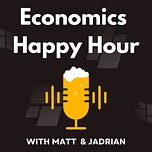






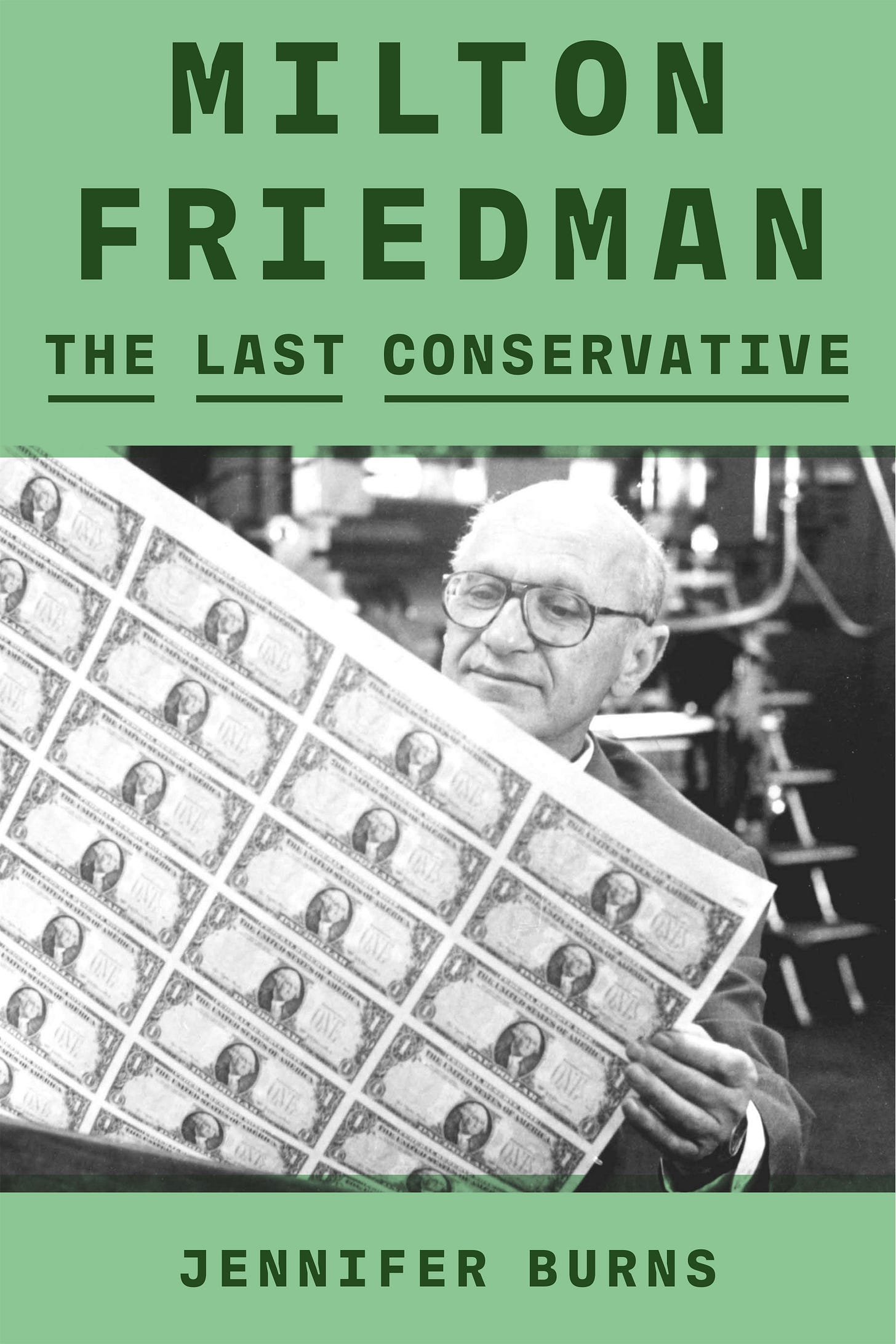


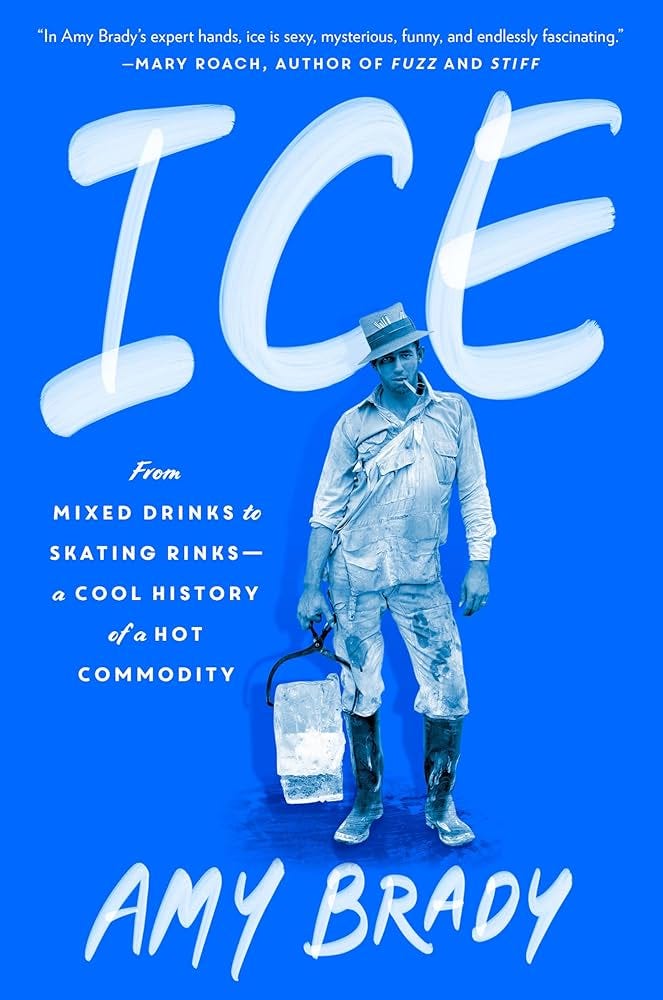
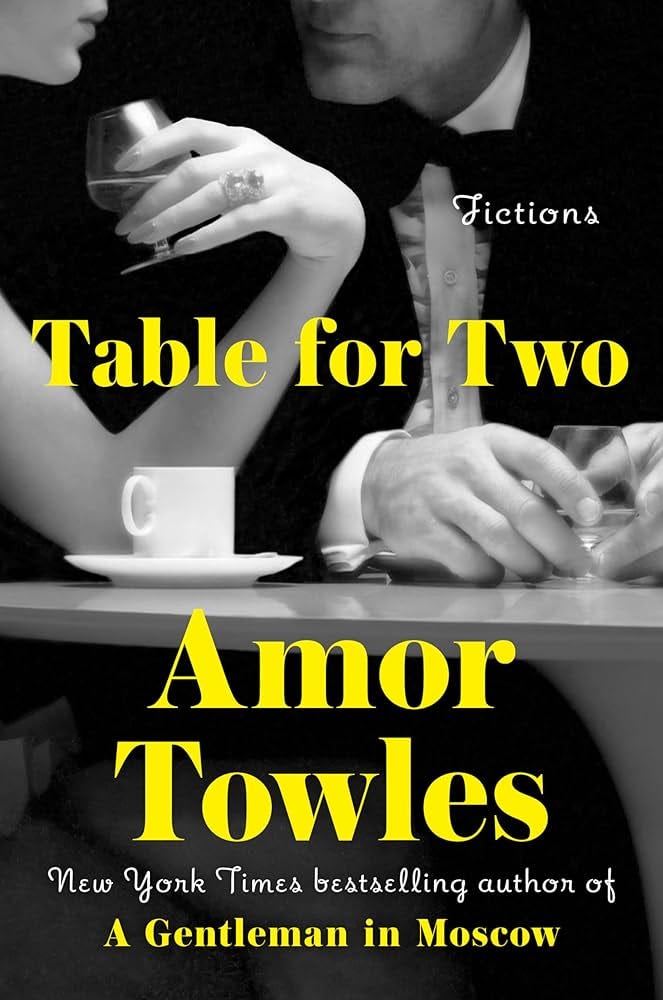








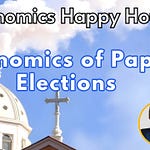


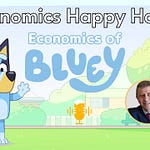
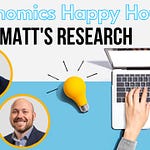
Share this post